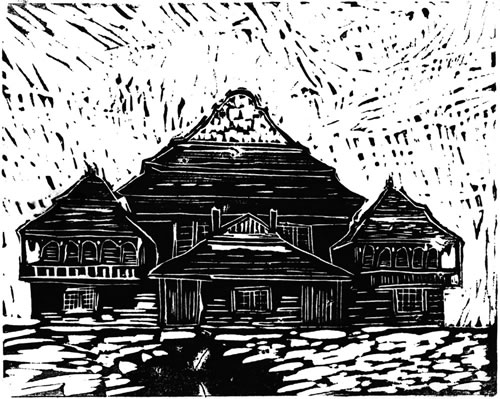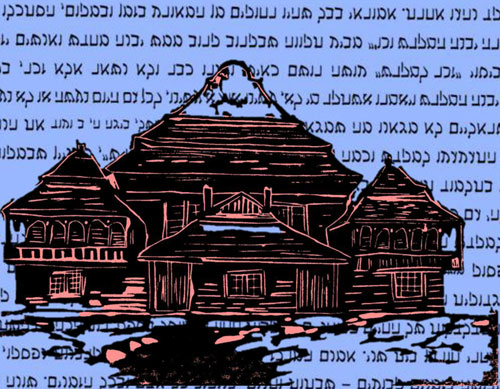Lost Treasures: The Wooden Synagogues of Eastern Europe The Artwork of Bill Farran
Volpa, Belarus - Original Linocut
Volpa, Belarus - Original Linocut
Yiddish name: Volp
Previous name, country: Wołpa Poland
Built in 1643 and considered one of the most significant synagogues in Poland, the wooden synagogue of Volpa contained a beautiful carved raised bimah with four supporting pillars. Because there was no stove for heat, it was used daily during the summer but open only on Saturdays during winter. The people would tell the Rabbi, "Make it fast—it's cold!”
Besides their traditional occupations in commerce and crafts, the Jews of Volpa engaged in domestic farming. Lack of rail connections prevented further industrial development, so they became expert gardeners and tobacco growers. Following World War I, and the beginning of Polish rule in 1919, the armies stationed near Volpa incited anti-Jewish activity. In 1929, when Jews were forbidden to grow tobacco, their main source of livelihood, some became vegetable farmers, specializing in cucumbers for pickling.
The wooden synagogue was burned down by the Nazis in November 1942. It is believed that only one Jewish resident who lived in Volpa prior to the German invasion survived the Holocaust.
Purchase a print
Original linocut prints are 8x10 inches, and are available either unmatted or in an 11x14 matte.
I also offer matted 5x7 digital prints. These prints are created from high-res digital images and come in an 8x10 matte.
For this synagogue I have created an additional digital print, with Hebrew lettering in the background. These prints are also created from high-res digital images and come in an 8x10 matte.



